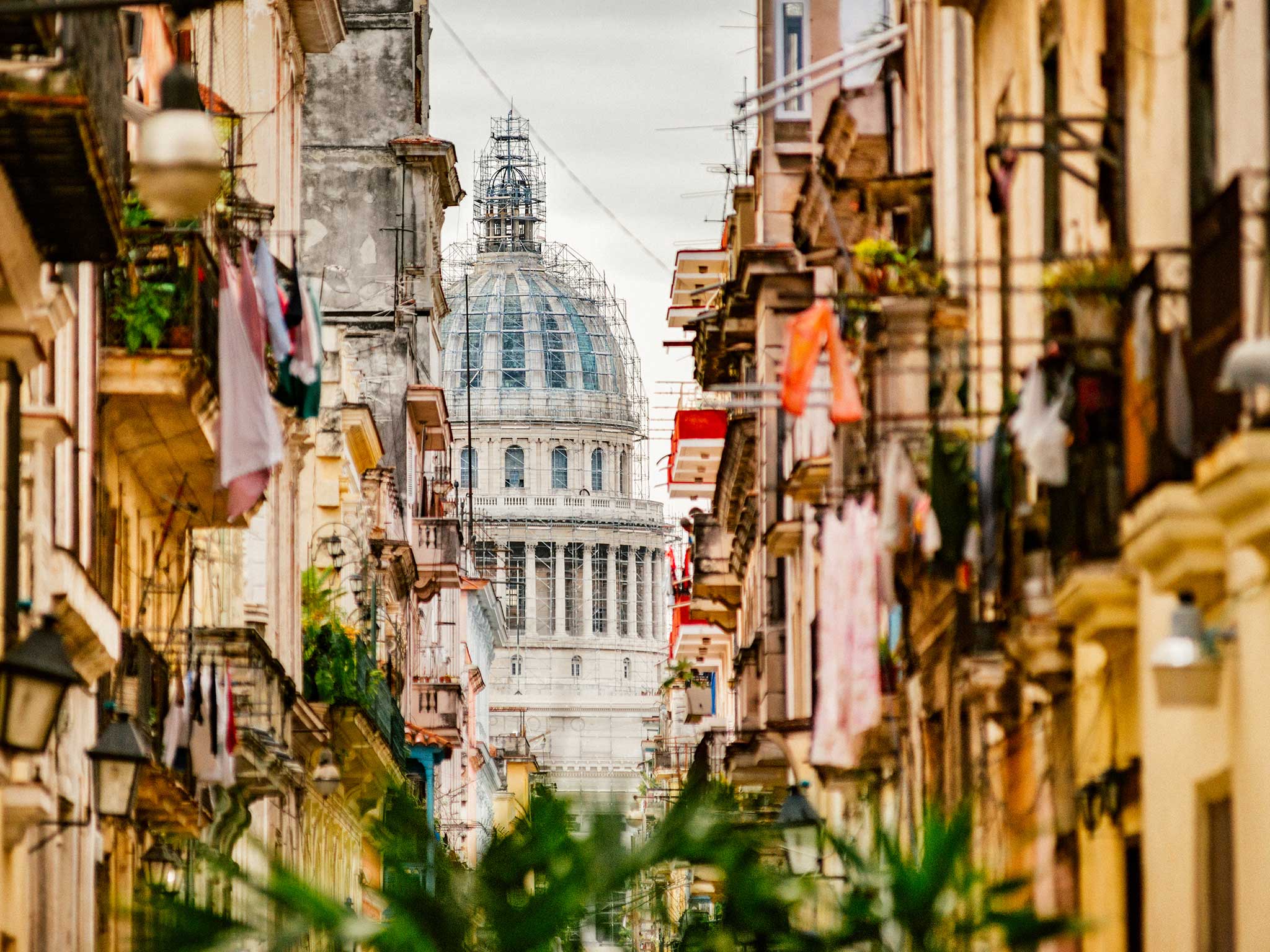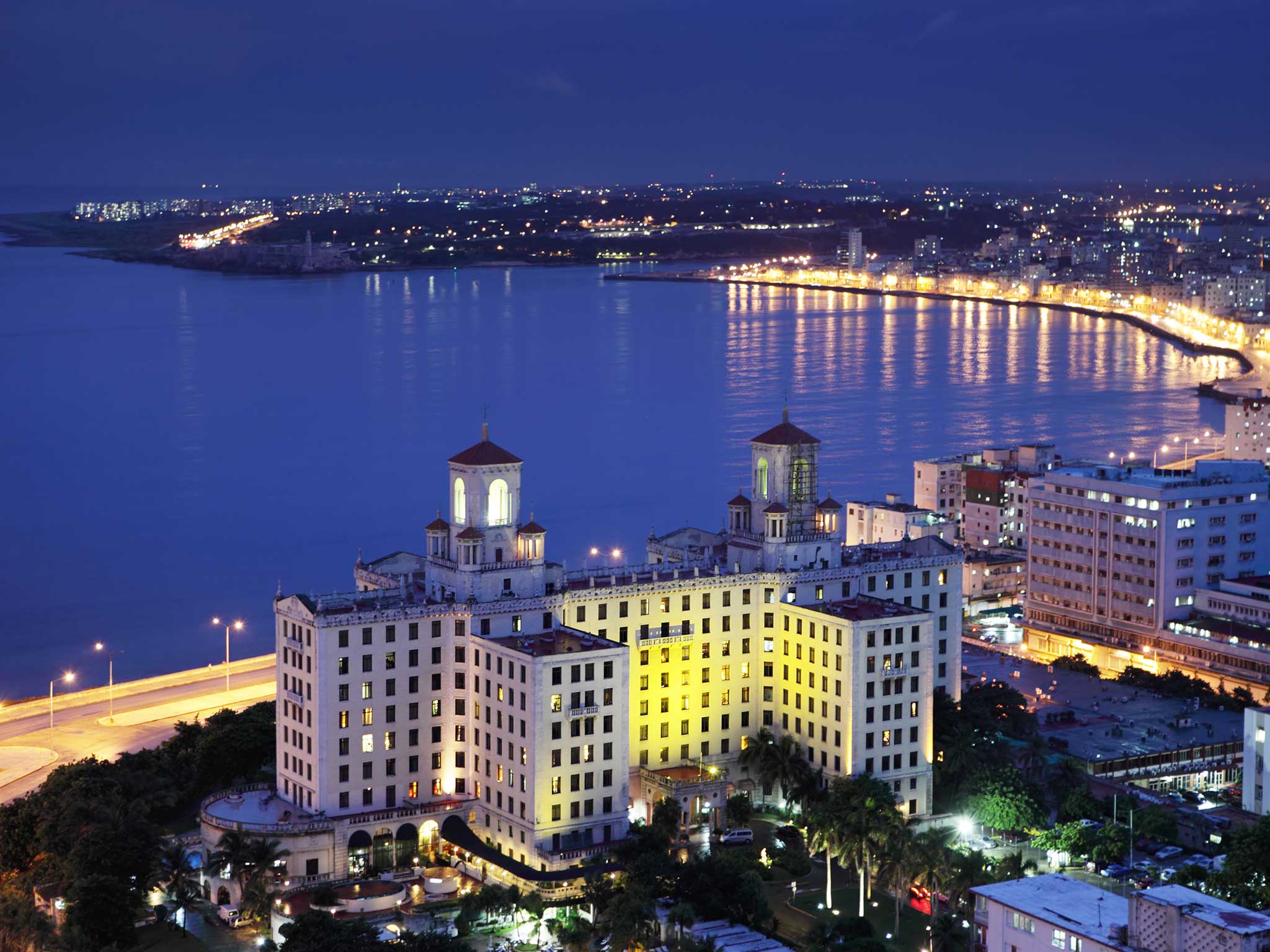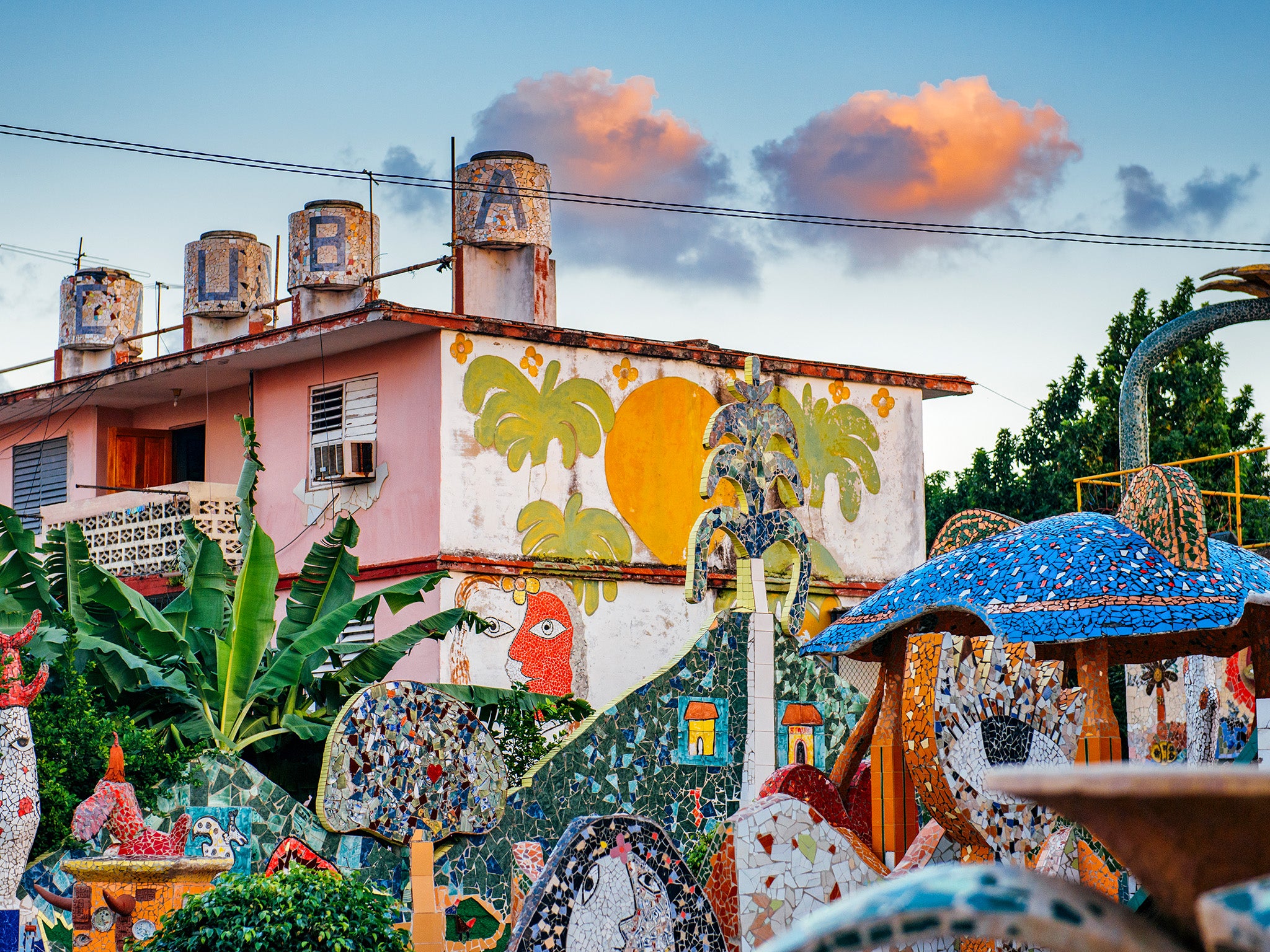The architecture of Cuba: a magical blend of past and future
There is so much more to see in Cuba than elegantly-wasted colonial-era palaces

Your support helps us to tell the story
From reproductive rights to climate change to Big Tech, The Independent is on the ground when the story is developing. Whether it's investigating the financials of Elon Musk's pro-Trump PAC or producing our latest documentary, 'The A Word', which shines a light on the American women fighting for reproductive rights, we know how important it is to parse out the facts from the messaging.
At such a critical moment in US history, we need reporters on the ground. Your donation allows us to keep sending journalists to speak to both sides of the story.
The Independent is trusted by Americans across the entire political spectrum. And unlike many other quality news outlets, we choose not to lock Americans out of our reporting and analysis with paywalls. We believe quality journalism should be available to everyone, paid for by those who can afford it.
Your support makes all the difference.The glories of old Havana are renowned, Unesco-listed and heavily protected by the fabulously-named Office of the City Historian – although in the wet season, when masonry routinely drops from unmaintained balconies, the restoration effort doesn’t always show.
But there’s plenty more in Cuba to see than elegantly-wasted colonial-era palaces. The 20th century is now being mined by architecturally-minded visitors, from art deco mansions to mid-century modern hotels and, more esoterically, Soviet-era mega bunkers that loom ominously over parts of Havana, like the 1985-vintage Russian Embassy in Miramar, by “People’s Architect” Aleksandr Rochegov.

Being a conservation-minded place, arguments rage in Cuba about the balance between conserving the past and allowing the island nation to modernise.
For us, meanwhile, it’s salutary to see a city where each successive architectural genre has been fossilised in time, from colonial to “brutalismo”, leading to a unique streetscape that Cuban architect Miguel Coyula has described as “the last virgin city”.

Take the Riviera hotel, a 1959 confection of retro-gangster chic – “Rat Pack Rococo” or “Mafia Moderne” if you will – in the easterly end of the Malecon, where you will eat from the same plates that once served Sammy Davis Jr, or swim from Club Nautico, a beach club from the early 1950s designed in the shape of shells and one of the most charismatic pieces of distressed concrete to be seen.
The serious completist can attempt to climb or brave the lifts of the 1967-vintage Edificio Giron and the 1956 Focsa building: still the tallest building in the country and encompassing an entire block with glowering intensity.
Neo-classical edifices include the Lopez Serrano apartment block in 1932, and the Hotel Nacional de Cuba where the mojitos are served with an edge of glorious disdain.

All this reminds the viewer, in a serious of stylistic echoes, that Havana was the future once – on several occasions.
But one of the most pleasurable of all Havana’s architectural sights is the most grass-rootsy: Fusterlandia, an enchanting Gaudiesque mosaic construction by artist Jose Fuster in east Havana, with all the magic realism you need after all that concrete futurism.
Join our commenting forum
Join thought-provoking conversations, follow other Independent readers and see their replies
Comments